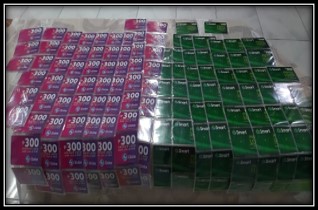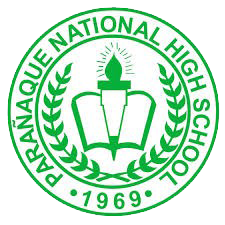Because Every Learner Matters
A Journey on Saving One Learner at a Time Through Intervention Projects
by: Ritche G. Beloy, Head Teacher III, Parañaque National High School-Main
Due to COVID-19 pandemic, the educational processes have changed dramatically which led to the shifting of the teaching-learning setting from traditional in-class to distance learning modality. The sudden changes have taken a toll on educators, learners, parents and other stakeholders. Quick adjustments have to be done to the new situation. Anchoring on the Department of Education’s battlecry “Sulong Edukalidad”, quality education must remain to be accessible to the learners despite the rapidly changing and challenging learning environment.
To be able to stay connected with the learners and parents; moreover, ensure that no student is being left behind, the Parañaque National High School-Main launched its three big and precise intervention projects namely: “Mobile Load Ko, Sagot sa Online Learning Mo”, “Project Salbabida” and “Project RIDE” last February 2, 2021 via Facebook livestreaming.
The first intervention program is entitled, “Mobile Load Ko, Sagot sa Online Learning Mo”, one of the Brigada Eskwela initiated projects and subsequent to “Gadget Ko, Tulay sa Future Mo”, a gadget donation drive which generated and awarded over 400 gadgets to PNHS-Main learners. It is an Adopt-a-Student project which specifically aims to sponsor students with P300.00 monthly worth of mobile load in support of their online distance learning. The total amount of load which is P1,500.00 pesos covers their February 2021 to June 2021 load expenses. The Brigada Eskwela received 245 requests for sponsorship and as of this writing, 196 students have already received the assistance, which they use as they engage in synchronous and asynchronous classes through Google Classroom, Facebook Messenger, Messenger Classroom and Google Meet, in downloading of their modules and in submitting their answer sheets as well as their outputs.
The school administrators, teachers (former and current), alumni and other stakeholders have expressed utmost support for the said project. Several pledges have been received and surely the remaining 49 students will be given assistance and hopefully another batch of recipients will follow. Mrs. Percila S. Mislang, Chairman of Brigada Eskwela, serves as the Project Director. Assisting her is the entire Brigada Eskwela Committee.
The second intervention program is called, “Project Salbabida”. This project simply aims to provide assistance by encouraging students who are at-risk of dropping out to return to school and continue with their education. In the modular distance learning, it is very important to dig deeper into the challenges that students encounter such as financial and family problems, health issues, learning difficulty and other concerns that may hamper their academic participation and progress.
Based on the data forwarded by every department, there was a significant number of learners who are out-of-reach or have never been engaged by any of their teachers. Failure to address this issue might lead to dropout. From the blend word ‘salbabida”, a combination of “salba” which means “to save” and “bida” which means “hero”, this project aims to save the learners by bringing them back into their classes and help them champion their studies. Jobelle Ruiz, an ESP/Guidance Teacher serves as the Project Director. Her team is comprised of teachers from the ESP Department and teachers/staff from the Guidance Office.
The third intervention project is entitled, “Project Ride”. RIDE stands for Responsive Intervention program for Distance Education. The primary aim of this project is to provide an intervention program that is data driven and responsive to the current and specific needs of the learners in distance learning. Comprised of volunteer riders from faculty, government and private groups and individuals, the riders’ task is to visit learners at their homes, bring to them the modules that they need and conduct needs assessment as basis for follow-up. Of course, volunteer riders are advised to coordinate with the Barangay Officials prior to their visit, and strictly follow health and safety protocol mandated by the Inter-Agency Task Force for COVID-19. Kirk M. Magdamit, Assistant to the Principal, serves as the Project Director.


The school administrators, teachers (former and current), alumni and other stakeholders have expressed utmost support for the said project. Several pledges have been received and surely the remaining 49 students will be given assistance and hopefully another batch of recipients will follow. Mrs. Percila S. Mislang, Chairman of Brigada Eskwela, serves as the Project Director. Assisting her is the entire Brigada Eskwela Committee.
The second intervention program is called, “Project Salbabida”. This project simply aims to provide assistance by encouraging students who are at-risk of dropping out to return to school and continue with their education. In the modular distance learning, it is very important to dig deeper into the challenges that students encounter such as financial and family problems, health issues, learning difficulty and other concerns that may hamper their academic participation and progress.
Based on the data forwarded by every department, there was a significant number of learners who are out-of-reach or have never been engaged by any of their teachers. Failure to address this issue might lead to dropout. From the blend word ‘salbabida”, a combination of “salba” which means “to save” and “bida” which means “hero”, this project aims to save the learners by bringing them back into their classes and help them champion their studies. Jobelle Ruiz, an ESP/Guidance Teacher serves as the Project Director. Her team is comprised of teachers from the ESP Department and teachers/staff from the Guidance Office.
The third intervention project is entitled, “Project Ride”. RIDE stands for Responsive Intervention program for Distance Education. The primary aim of this project is to provide an intervention program that is data driven and responsive to the current and specific needs of the learners in distance learning. Comprised of volunteer riders from faculty, government and private groups and individuals, the riders’ task is to visit learners at their homes, bring to them the modules that they need and conduct needs assessment as basis for follow-up. Of course, volunteer riders are advised to coordinate with the Barangay Officials prior to their visit, and strictly follow health and safety protocol mandated by the Inter-Agency Task Force for COVID-19. Kirk M. Magdamit, Assistant to the Principal, serves as the Project Director.


Mr. Gerry A. Lumaban, School Principal of Paranaque Narional High School-Main, emphasized that these three big intervention projects are part of the school’s dropout reduction initiative. He added that the said projects intend to address various concerns relative to modular distance learning and its success cannot be achieved without the support from teachers, parents, learners and other stakeholders. In his inspirational message during the launching, he pointed out the very significant role that teachers play in order to achieve the objectives of the projects and eventually impact positive change.
The launching program which happened last February 2, 2021 was graced by Dr. Evangeline P. Ladines, CESO V, Schools Division Superintendent, Dr. Violeta M. Gonzales, OIC-Assistant Schools Division Superintendent, Dr. Bernardo N. Mascariña, Chief of the Curriculum Implementation Division and Ma. Estrellita C. Arceo, Public Schools District Supervisor for District VIII.
In his message, Dr. Mascariña mentioned that the pandemic has motivated schools to be innovative and creative in their intervention programs. As such, he congratulated PNHS-Main for embarking into the three responsive intervention projects which can really save every learning from dropping out since the objectives are perfectly addressing students’ needs relative to their online distance learning.
This novel learning environment has indeed challenged every educator as they carry out their duties and responsibilities. Yet, what lies inside the heart of every teacher can never be compromised. These intervention projects are products of the heart which will be fulfilled because every learner matters.

